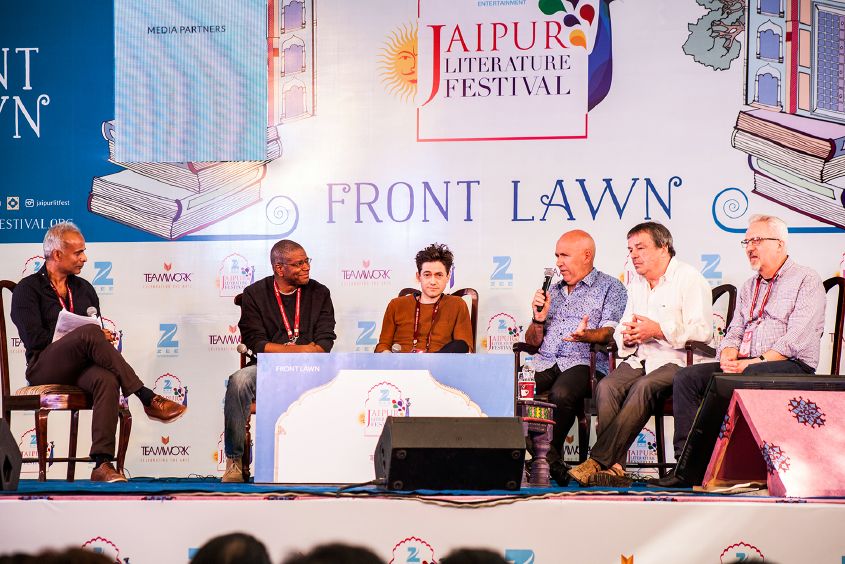Literature is rarely the topic of enquiry and debate at literary events. The focus usually falls on books of social, political or even economic relevance. Or on pointless books written by showbiz celebrities. So Sunday’s panel at the Jaipur Literature Festival, though rather unimaginatively titled “The Art of the Novel”, was a refreshing departure from the norm. The questions addressed by the panel were very basic – how is writing done, and with what kind of reader in mind? – yet not in the least lacking in significance or interest, with the likes of Alan Hollinghurst, Adam Thirlwell, Richard Flanagan, Manu Joseph and Paul Beatty on the stage.
What consitutes a “post-colonial” novel, for instance? “Why do they say post-colonial novel?” asked journalist and novelist Manu Joseph. “Why not post-Jurassic novels? That would be more accurate, at least.”
That old chestnut about what makes a novel sufficiently “literary” also came up during the session. The Tasmanian writer Richard Flanagan, who won the Man Booker Prize in 2014 for his novel The Narrow Road to the Deep South, said that he finds “literary novel” in itself a meaningless term: “What about Homer? Was he a literary poet?”
The Irish novelist and filmmaker Neil Jordan offered a more tongue-in-cheek interpretation of this. “Literary novels are the ones you don’t find at airport bookstores,” he said. “I was at the San Francisco airport, and I’d just published a book, which I saw at the airport bookstore, and I thought, ‘What on earth is that book doing there?'”
These days, getting your book published and getting the word “novelist” put on your business card are considered prestige issues. But it’s important for someone who is beginning to write to look beyond these superficialities and to think of writing as, to borrow one of Flanagan’s ideas, a sort of sacred contract between reader and writer. “The writer’s main contract is not with literary socieities or with anyone else. It is always and only with the reader,” he said. Worth bearing in mind while penning down your next masterpiece.
- Advertisement -

